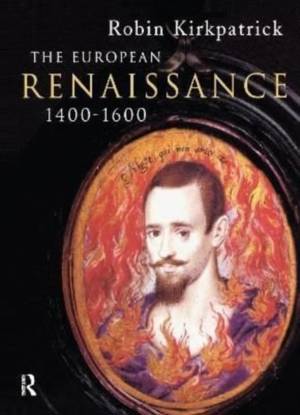
Door een staking bij bpost kan je online bestelling op dit moment iets langer onderweg zijn dan voorzien. Dringend iets nodig? Onze winkels ontvangen jou met open armen!
- Afhalen na 1 uur in een winkel met voorraad
- Gratis thuislevering in België vanaf € 30
- Ruim aanbod met 7 miljoen producten
Door een staking bij bpost kan je online bestelling op dit moment iets langer onderweg zijn dan voorzien. Dringend iets nodig? Onze winkels ontvangen jou met open armen!
- Afhalen na 1 uur in een winkel met voorraad
- Gratis thuislevering in België vanaf € 30
- Ruim aanbod met 7 miljoen producten
Zoeken
Omschrijving
With Italy at its centre, but encompassing the whole of Renaissance Europe, this evocative history challenges some of the popularly-held views on the Renaissance period. In particular, whilst always acknowledging the brilliance and exhuberance of Renaissance culture, Robin Kirkpatrick draws equal attention to the strangeness and often unresolved tensions that lay beneath the surface of that culture.Insisting on a European rather than purely Italian viewpoint, he embraces Renaissance thinking and culture in all its diversity: from Northern thinkers such as Cusanus, Luther and Calvin, to the painting of Van der Weyden and El Greco, and the music of the Flemish musicians, Josquin des Prez and Orlando Lassus. Special attention is also paid to the unique contribution made by Margueritte of Navarre to the development of humanist culture. The book concludes with a study of Shakespeare in which his plays are viewed as a searching critique of some of the main principles of Renaissance culture.
Specificaties
Betrokkenen
- Auteur(s):
- Uitgeverij:
Inhoud
- Aantal bladzijden:
- 408
- Taal:
- Engels
- Reeks:
Eigenschappen
- Productcode (EAN):
- 9781138150010
- Verschijningsdatum:
- 18/08/2016
- Uitvoering:
- Hardcover
- Formaat:
- Genaaid
- Afmetingen:
- 156 mm x 233 mm
- Gewicht:
- 929 g

Alleen bij Standaard Boekhandel
+ 91 punten op je klantenkaart van Standaard Boekhandel
Beoordelingen
We publiceren alleen reviews die voldoen aan de voorwaarden voor reviews. Bekijk onze voorwaarden voor reviews.











